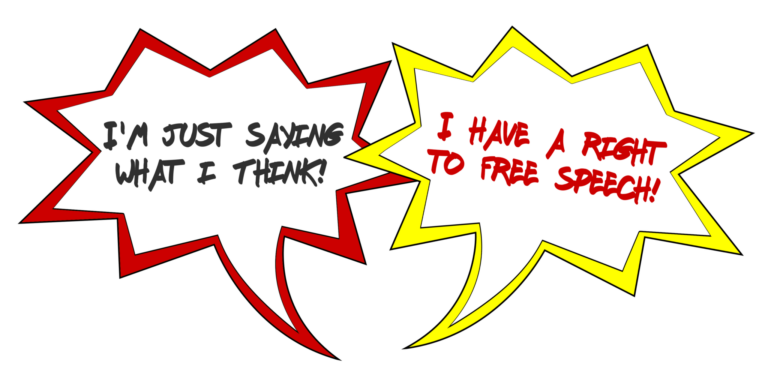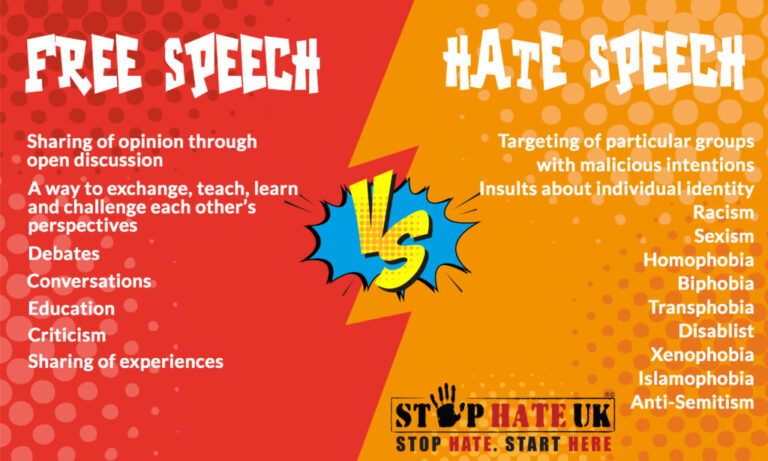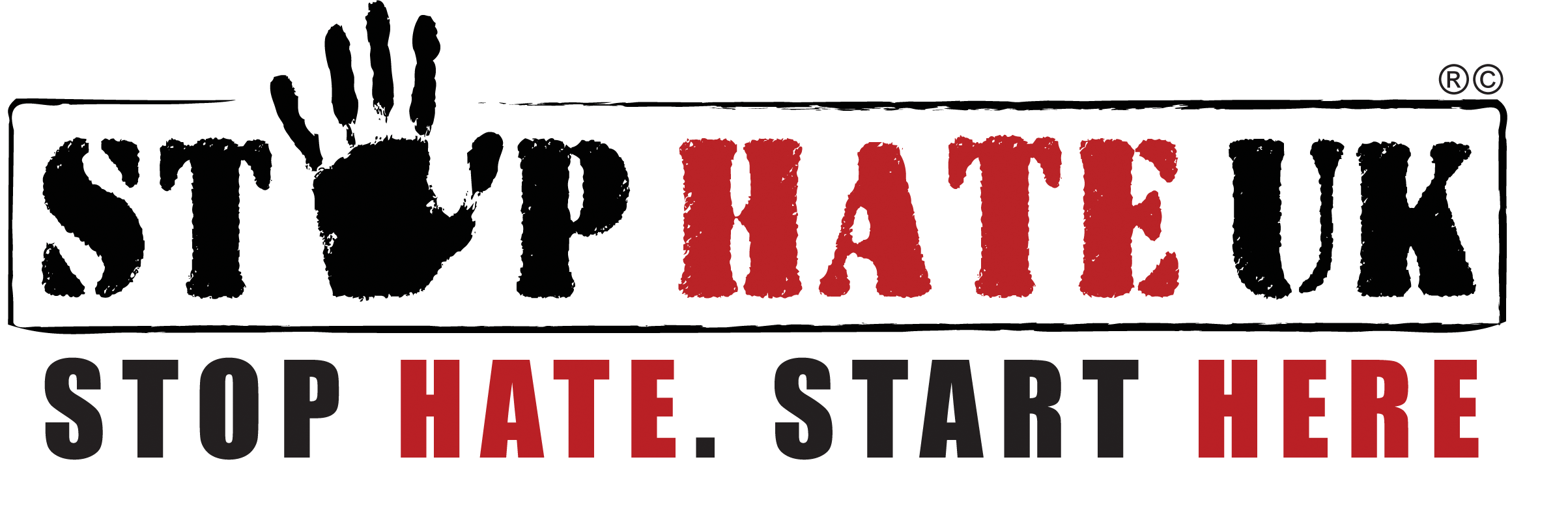Online Hate and Free Speech
What is the difference between Online Hate and Free Speech?

These are common responses when people are challenged about some of the things they say. But this is a complex area.
When it comes to Online Hate, in order to strike a balance with freedom of speech, there is a high threshold for evidence to prosecute grossly offensive, obscene or malicious communications.
In the UK, free speech means the right to seek, receive and share information and ideas with others. But this freedom must be used responsibly, and can be restricted when considered ‘grossly offensive’ or seen as threatening or encouraging hateful activity.
Hate speech, particularly online, often describes those targeted as being ‘the other’, in opposition to the author’s group, and even dehumanises them. Hate speech perpetrators often see ‘the other’ as enemies and the sole cause of problems in society.
All Internet platforms can be places where people post hateful content, whether as words, videos, photos or memes, and cause great harm. It is up to all of us to consider our own online content and make sure we are not crossing the line from free speech to hate speech.
Remember, if something targets a group or person because of an aspect of their identity, it is Hate Speech.
Here are some examples of cases of Online Hate prosecuted:
- 20 months in prison
- 12 Weeks in Prison
- 4 Years in Prison
In 2017, Paul Hepplestall was found guilty of ‘racially aggravated malicious communications’ after posting threatening and abusive videos targeting members of Pakistani and Mulims communities. He was sentenced to 20 months in prison and given a 5-year restraining order preventing him from deleting his internet history.
In 2019, Staurt Hanson was found guilty of ‘sending by public communication an offensive message’ and sentenced to 12 weeks in jail, uplifted from 8 weeks, to take account of the religious Hate Crime element of the offending.
In 2019, Jay Davison was jailed for 4 years for ‘stirring up racial and religious hatred’ through a video on Instagram. The judge said: “This is a warning to people that posting material online can have damaging consequences for them online.
All internet platforms can be places where people post hateful content, whether as words, videos, photos or memes, and cause great harm. It is up to all of us to consider our own online content and make sure we are not crossing the line from free speech to hate speech


